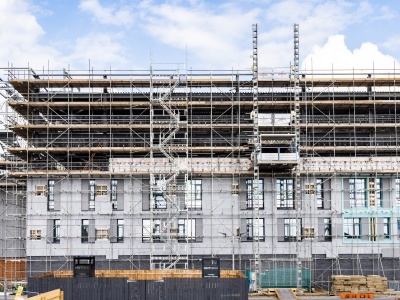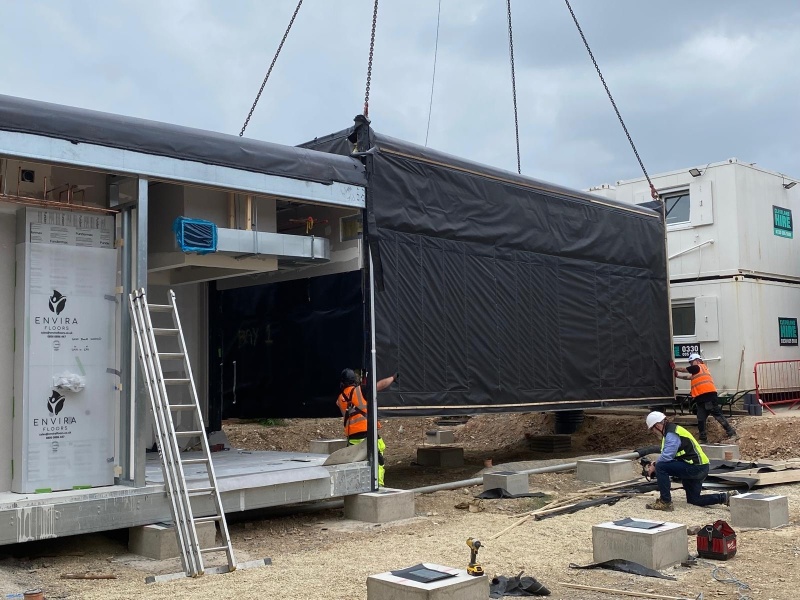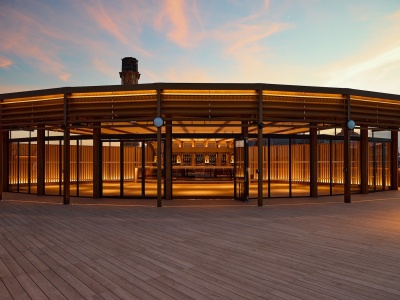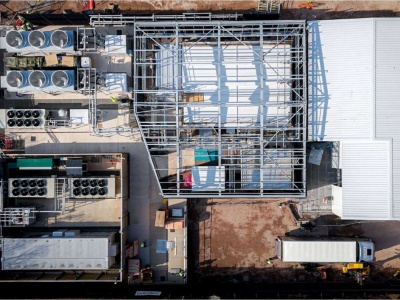
Modern Methods of Construction: balancing innovation with practicality in the NHS

Modern Methods of Construction: balancing innovation with practicality in the NHS
By Chris Stokes, Director
The NHS faces unprecedented pressures: growing demand, tighter budgets, and the need to deliver safe, sustainable care faster than ever. Modern Methods of Construction (MMC) are no longer optional, they are central to how healthcare estates projects are delivered.
While MMC promises speed, standardisation, and sustainability, applying it in complex NHS environments can be challenging. At Kendall Kingscott, we’ve found that the best outcomes come when innovation is combined with practical solutions.
Why MMC matters
The NHS now expects significant use of MMC - 70% for new builds and 50% for refurbishmentsi - as part of the “Hospital 2.0” vision. Standardised grids and prefabricated modules offer predictability, cost control, and economies of scale.
Off-site manufacturing also ensures higher quality and shorter on-site programmes, reducing disruption for patients and staff. For hospitals under pressure to keep services running, this is critical and with the NHS net zero ambitions, the lower waste and carbon footprint of MMC supports long-term sustainability.
The right balance
Not every facility or every element of one suits modularisation. Large-span spaces like plant areas may be best built traditionally, while repeatable rooms such as offices, inpatient bed spaces or treatment suites are ideal for volumetric modules. The most effective projects take a hybrid approach, using each method where it adds most value.
MMC can sometimes be an afterthought and bolted on late, limiting the benefits. Engaging modular suppliers early ensures design grids align, logistics are practical, and lead times are managed. This upfront planning is vital to realising the programme and cost savings MMC can offer.
Standard components are sometimes preferred as they are easy to maintain and install, so this can maximise efficiencies both in construction and in the ongoing maintenance costs and are suitable for refurbishment projects.
Case study: Community Diagnostic Centre
Our work with Great Western Hospitals NHS Foundation Trust highlights how MMC can improve both delivery and patient care. We used a volumetric modular approach for a new Community Diagnostic Centre, coordinating carefully to minimise disruption to the neighbouring health centre, which stayed operational throughout.
The result will be more than just a building. Once open, the CDC will provide quicker diagnostic access for around 6,000 patients a year - reducing travel, cutting waiting times, and enabling earlier treatment. For staff, the scheme delivers modern, well-planned clinical spaces aligned to NHS standards.
Moving forward
MMC are reshaping NHS infrastructure, but their success lies in balance: combining traditional and modular methods, engaging suppliers early, and always keeping patient and clinical needs at the forefront. Done well, MMC delivers not only efficient and sustainable builds, but also the capacity for improved care that meet the changing dynamics of the NHS.

